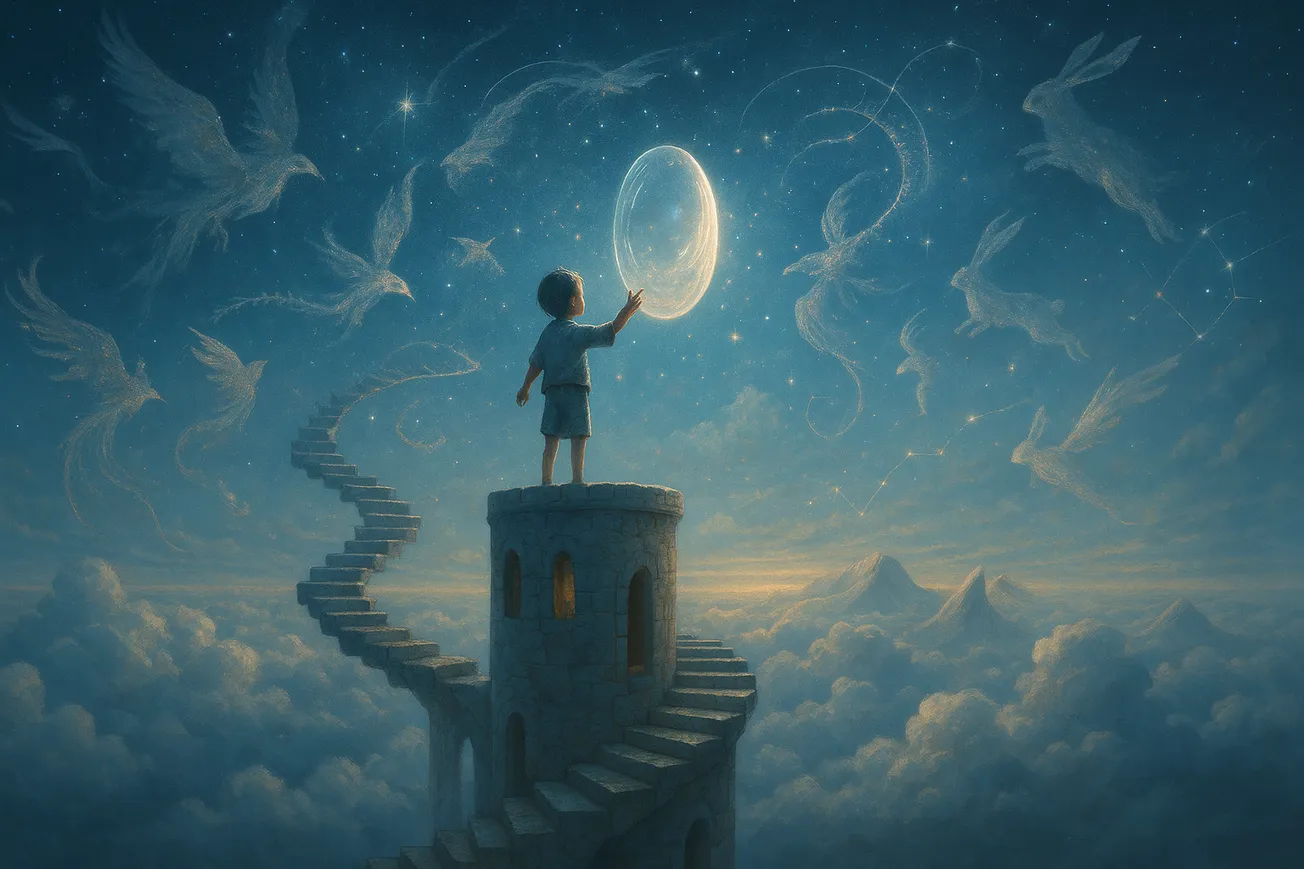🌈 The Fractal Story Engine | Time & Reality | (19) TR-004-S
In the center of the Sea of Sleep stood a tower made of moonlight and memory. It had no foundation, no roof, and no door. Only dreamers could enter it, and only once.
Each century, the Dreamkeepers would send out a single bell. It did not ring, but instead vibrated through the sleeping bones of children, calling forth one who dreamed deeply enough to breach the boundary.
This century, the bell entered a boy named Leven. He did not know it, of course. He only felt the world begin to unravel in places: corners that curled, birds that repeated their flight path with too-perfect precision, water that failed to ripple when touched. At night, he would wander cities made of breath, speak with creatures who left behind no memory of their form, and wake each morning with a sense that he had left something real behind.
He told his parents. They smiled with the weariness of those who no longer believed in dreams. He told his teacher. She gave him pills that painted his sleep in grey. But the dreams returned.
On the fourteenth night of the flowerless moon, Leven walked through a doorway made of song. Behind him was the sleep-mask world. Ahead stood the tower.
It was taller than any structure he had seen, but its top dissolved into starlight. The stairs inside moved like breath, sometimes ascending, sometimes falling. He passed chambers of impossible geometry, where clocks turned backward and forward at once, and names floated in jars filled with unspoken words.
At the top, a room shaped like an eyelid waited. In the center, a mirror of still water reflected only what had not yet occurred. Around it stood the Dreamkeepers: seven figures stitched from silk, feather, ash, wind, bone, ink, and grief.
“You have come,” said the one made of grief.
“Was I chosen?” Leven asked.
“You chose yourself,” said the one made of feather. “Every dream that ever tried to wake you brought you here.”
Leven looked into the mirror. He saw a city where no one slept, where exhaustion wore the face of progress. He saw rows of humans bent over glowing rectangles, swiping their fingers across illusions until their hearts forgot how to ache. He saw rituals turned into schedules, and wonder traded for productivity.
And in one of the reflections, he saw himself, walking through a world that thought itself awake. But everywhere he stepped, color returned. People paused. The dream cracked.
“You are to become the Waking,” said the one made of ink. “Not to awaken yourself, but to be the rift through which the Dream leaks.”
Leven hesitated. “If I do this, will I return?”
“No,” said all seven. “But your echoes will.”
So he knelt beside the mirror, placed his hand into the water, and offered up his name. It dissolved like sugar. In its place bloomed a ripple that touched every dreamer, every sleepless child, every artist on the verge of remembering.
Back in the world, people began to pause mid-sentence, unsure what they were saying. Trains stopped without cause. A woman in London woke from a meeting and found herself weeping for a city made of string. A boy in Cairo painted a symbol he’d never seen, and it opened a door behind his classroom wall.
The world frayed.
And into the fray walked the echo of Leven, carried by wind, carried by birdsong, carried by a dream too patient to die.
No monument stands to mark the moment. No book remembers his name. But sometimes, just before waking, a figure appears in the final dream. A boy with eyes full of towers and a question on his lips.
“Are you sure this is the real world?”

